











Mr. Mysterio’s Hoboscopes
“I must have learned all kinds of things that I still know. It’s all just kind of a blur, Scorpio.”

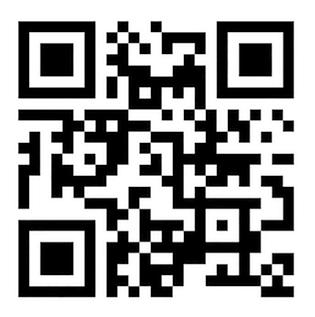
If you’re looking for troubled teens and traumatized teachers, check out Steve Stream it
Venmo has canceled our account, but you can still pay using Square! You must identify your vendor so we know where to send the payment. Here's how:
Use your phone camera and scan the code on this page or on the top left corner of the cover of this paper. This will take you to the landing page: thecontributor.org/pay.
Type in the amount you wish to pay. The paper costs $2. Tips are welcomed. Vendors get paid by the next business day.



Since The Contributor started in 2007, more than 3,200 different vendors have purchased $2.3 million worth of The Contributor and sold over six million copies, generating over $15 million in income for themselves.
In 2019, our C.O.V.E.R. Program (Creating Opportunity for Vendor Employment, Engagement, and Resources) was the natural expansion of our mission of removing obstacles to housing. We now offer full case management, assistance with housing and rental expenses, addiction recovery, health insurance, food benefits, and SSI/SSDI





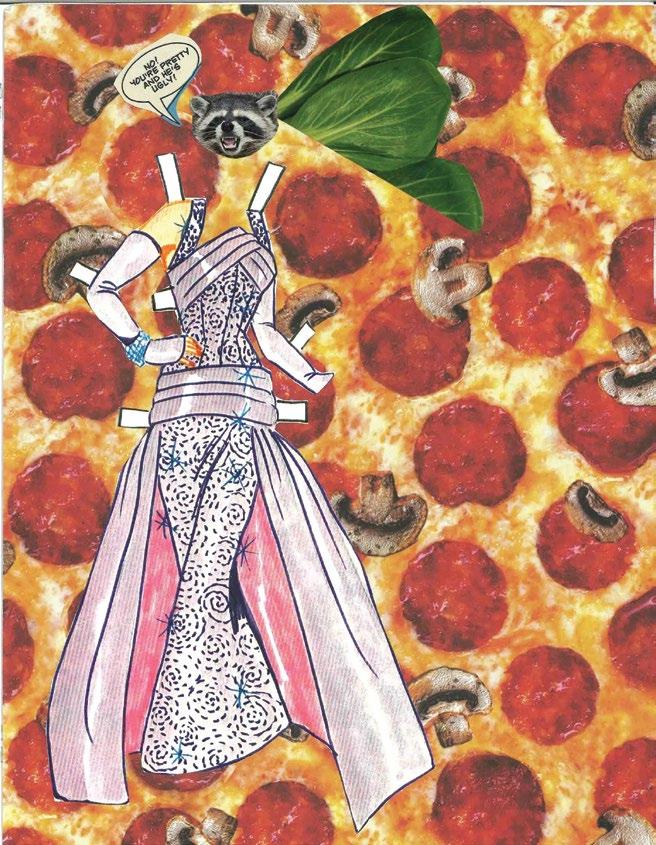



Local artist and educator Paul Collins began working with The Contributor newspaper earlier this year, and that collaboration between Nashville’s street paper and his DIY publishing venture, Stagger Press, has resulted in a chance for vendors to further show their work.
On Nov. 8, Gallery 56 will open UNZINE, a pop-up exhibition curated by Collins, running through Dec. 13. The show brings to life the eponymous zine series created through a partnership among The Contributor, Nashville Street Poetry Project, and Stagger Press
BY AMANDA HAGGARD
— a collaboration that amplifies the voices of The Contributor’s vendor community through the art of handmade zines. Stagger Press, Collins’s advocacy publishing initiative, focuses on projects that combine art and social impact, including UNZINE Nashville, the 2025 Jones Paideia Elementary Legacy Project and the Unbannable Library Project.
Vendors of The Contributor have worked alongside local artists and writers to create low-cost, highly personal comic-style zines they sell independently. The ongoing workshops, hosted bi-weekly, have fostered cre-
ativity and connection thanks to volunteers like Melissa Willis, Benji Anderson and Joe Nolan, whose Nashville Poetry Workshop has added poetic depth to many of the works. The Nashville Street Poetry Project, founded by intermedia artist Joe Nolan, partners with Contributor vendors to develop writing skills through hands-on workshops. Nolan — author of Nowville: The Untold History of Nashville’s Contemporary Art Scene — uses poetry as a bridge to confidence and community.
The exhibition will showcase original artwork from the 2025 UNZINE series, along-
side pieces by participating local artists and writings from Nolan’s poetry workshop. These efforts make UNZINE not just an art exhibition, but a movement celebrating storytelling, collaboration and the creative voices often left unheard on Nashville’s streets.
Throughout the month, Gallery 56 will also host a series of community events for UNZINE: Nov. 8: Exhibition opening Nov. 13, 20, 27: Artist and poet profiles Nov. 15–16: Wrapping paper parties Nov. 30: Children’s zine-making session
“The Contributor” está trabajando con uno de los principales periódicos en español La Noticia para llevar contenido a más lectores en Middle Tennessee. Nuestros vendedores de periódicos han pedido durante mucho tiempo que nuestra publicación incluya contenido que apele al interés de residentes de habla hispana en nuestra comunidad.
“The Contributor” is working with one of the leading Spanish-language newspapers La Noticia to bring content to more readers in Middle Tennessee. Our newspaper vendors have long requested that our publication include content that appeals to the interest of Spanish-speaking residents in our community.


P r o g r a m a d e A s i s t e n c i a N u t r i c i o n a l S u p l e m e n t a r i a ) , a n t e r i o r m e n t e c o n o c i d o c o m o “ c u p o n e s d e a l im e n t o s ”
E l D e p a r t a m e n t o d e A g r i c u l t u r a d e l o s E s t a d o s U n i d o s ( U S DA , p or s u s s i g l a s e n i n g l é s ) , e n c a r g a d o d e a d m i n i s t r a r S NA P, h a a dve r t i d o q u e l o s fo n d o s d i s p o n i bl e s p o d r í a n ve r s e i n t e r r u m p i d o s s i e l c i e r r e s e p r o l o n g a E s t o a f e c t a r í a d i r e c t am e n t e a m i l l o n e s d e h o g a r e s q u e d e p e n d e n d e e s t a ay u d a p a r a c u b r i r s u s n e c e s i d a d e s a l i m e n t a r i a s b á s ic a s S e g ú n e l U S DA , m á s d e 4 2 m il l o n e s d e p e r s o n a s r e c i b e n a c t u a lm e n t e a s i s t e n c i a d e l p r o g r a m a e n t o d o e l p a í s
E n e l c a s o d e Te n n e s s e e , a l r e d e d o r
d e 7 0 0 , 0 0 0 r e s i d e n t e s s e b e n e f i c i a n d e S NA P c a d a m e s M u c h a s d e e s t a s f a m i l i a s e n f r e n t a n e l a u m e n t o d e l c o s t o d e v i d a , l a i n fl a c i ó n y l a i n s e g u r i d a d a l i m e n t a r i a U n c i e r r e p r o l o n g a d o p o d r í a s i g n i f i c a r r e t r as o s e n l o s p a g o s o i n t e r r u p c i o n e s e n l o s f o n d o s q u e l o s e s t a d o s d i st r i b u ye n m e n s u a l m e n t e
S i n e m b a r g o , j u n t o c o n l a p r e o c u -


p a c i ó n p o r l a p o s i bl e i n t e r r u p c i ó n d e b e n e f i c i o s , t a m b i é n c i r c u l a u n a g r a n c a n t i d a d d e d e s i n f o r m a c i ó n s o b r e q u i é n e s p u e d e n r e c i b i r e s t a ay u d a U n o d e l o s m i t o s m á s p e r s i st e n t e s y d a ñ i n o s e s l a i d e a d e q u e l o s i n m i g r a n t e s i n d o c u m e n t ad o s r e c i b e n b e n e f i c i o s d e l g o b i e r n o , i n c l u ye n d o S NA P
L a ve r d a d s o b r e q u i é n c a l i f i c a p a r a S NA P
L a r e a l i d a d e s c l a r a y ve r i f i c a bl e : l a s p e r s o n a s i n d o c u m e n t a d a s n o s o n e l e g i bl
p r o g r a m a S NA P L a l e y f e d e r a l e x i g e q u e l o s s o l i c i t a n t e s s e a n c i ud a d a n o s e s t a d o u n i d e n s e s o “ e x t r a n -
j e r o s c a l i f i c a d o s ” , u n a c a t e g o r í a
l e g a l q u e i n c l u ye a c i e r t o s i n m ig r a n t e s c o n e s t a t u s r e g u l a r, c o m o
Conoce tus derechos:
¿Que hacer en caso de una redada?
Mantenerse callado
Sólo dar nombre y apellido
No mentir
Nunca acepte/lleve documentos falsos
No revelar su situación migratoria No llevar documentación de otro país
En caso de ser arrestado, mostrar la Tarjeta Miranda sados en la Quinta Enmienda de la Constitución, derechos de guardar silencio y contar con un ogado fueron denominados Derechos Miranda go de la decisión de la Suprema Corte de Justicia Estados Unidos en el caso Miranda vs Arizona, 4 U S 436, de 1966

l o s r e s i d e n t e s p e r m a n e n t e s l e g a l e s ( t i t u l a r e s d e l a “ g r e e n c a r d ” ) , r e f u -
g i a d o s , a s i l a d o s y a l g u n o s m e n o r e s i n m i g r a n t e s e s p e c i a l e s
E s t o s i g n i f i c a q u e , a u n q u e u n h o g a r i n c l u ya a u n a p e r s o n a i n d o c u m e n -
t a d a , s o l o l o s m i e m b r o s d e l h o g a r
c o n e s t a t u s l e g a l e l e g i bl e p u e d e n r e c i b i r a s i s t e n c i a Po r e j e m p l o , e n u n a f a m i l i a m i x t a d o n d e l o s h i j o s n a c i d o s e n E s t a d o s U n i d o s s o n c i ud a d a n o s , l o s n i ñ o s p o d r í a n c a l i -
f i c a r p a r a r e c i b i r S NA P, p e r o l o s p a d r e s i n d o c u m e n t a d o s n o
A d e m á s , l o s b e n e f i c i o s s e c a l c u l a n ú n i c a m e n t e c o n b a s e e n e l n ú m e r o
d e p e r s o n a s e l e g i b l e s e n e l h o g a r,
y l o s i n g r e s o s d e l g r u p o f a m i l i a r
s e c o n s i d e r a n d e m a n e r a p r o p o rc i o n a l
E l i m p a c t o d e l a d e s i n f o r m a c i ó n
L o s r u m o r e s y l a d e s i n f o r m a c i ó n s o b r e l o s p r o g r a m a s d e a s i s t e n c i a s o c i a l n o s o l o g e n e r a n d i v i s i ó n y p r e j u i c i o , s i n o q u e t a m b i é n c r e a n m i e d o e n l a s c o m u n i d a d e s i n m ig r a n t e s E n a l g u n o s c a s o
f a m il i a s c
n d e r e c h o a r e c i b i r a y u d a e v i t a n s o l i c i t a r l a p o r t e m o r a r e p e r c u s i o n e s m i g r a t o r i a s o p o r l a f a l s a c r e e n c i a d e q u e r e c i b i r S NA P p o d r í a a f e c t a r f u t u r o s t r á m i t e s m i g r a t o r i o s E s i m p o r t a n t e s u b r a y a r q u e e l U S DA y e l S e r v i c i o d e C i u d a d a n í a e I n m i g r a c i ó n ( U S C I S ) h a n a c l a r a d o q u e r e c i b i r S NA P n o a f e c t a l a e l e g ib i l i d a d p a r a l a r e s i d e n c i a p e r m an e n t e n i s e c o n s i d e r a d e n t r o d e l a r e g l a d e “ c a r g a p ú bl i c a ” E n t i e m p o s d e i n c e r t i d u m b r e p o l í t i c a y e c o n ó m i c a , p r o g r a m a s c o m o S NA P s o n e s e n c i a l e s p a r a g a r a n t i z a r q u e l a s f a m i l i a s m á s v u l n e r a bl e s p u e d a n a l i m e n t a r s e y v iv i r c o n d i g n i d a d E s r e s p o n s a b il i d a d d e t o d o s m e d i o s d e c o m u n ic a c i ó n , l í d e r e s c o m u n i t a r i o s y a u t o r i d a d e s c o m b a t i r l a d e s i nf o r m a c i ó n y p r o m ove r i n f o
Mientras se resuelve el cier re del gobier no, la esperanza es que los le gisladores encuentren una solución que priorice el bienestar de millones de familias trabajadoras que, cada día, hacen g rande a este país
En víenos sus sugerencias por e-mail: ne ws@hispanicpaper com ó 615-582-3757

BY REV. DR. KATE FIELDS
The Gospel of Luke, y’all. It is no surprise that our gospel lectionary text gets into wealth today. The writer of Luke is so very concerned about wealth contrasted with the folks who don’t have what they need to exist. In Matthew’s version of the sermon of the mount, we hear “Blessed are the poor in spirit” and in Luke’s version of it, it’s just:
“Blessed are you who are poor, for yours is the kingdom of God.”
And instead of blessed are those who hunger for justice, in Matthew, Luke just says: “Blessed are you who are hungry now.”
Those are two very different slants.
And no doubt, this story that Jesus shared in response to this brother’s request for arbitration is absolutely addressing the economic crisis of Jesus’ day.
In 1st century antiquity, Jesus lived during a full blown agrarian crisis in Galilee on lands controlled by the Roman empire. The Galileans were caught in a spiderweb of debt in the exploitative Roman economic system. It was a bleak time for the Galileans, many of whom farmed or fished for a living. Farmers were being forced to move out of rural farms into the city for service jobs due to their economic circumstances.
Wealthy money lenders and politicians were forming a new urban elite and were scooping up the best arable land that had been nurtured for centuries by generational farmers in order to establish plantations for olives and spices to be exported to Rome. The farmers were losing the land because they could not pay the unfair taxes on it.
These elite also took over the harbors and bridges and taxed their usage as well as the fish that fishermen caught to sell. The taxes due each year often meant that fishermen would have no choice but to sell their boats to moneylenders at high rates of interest and then lease them back to use. If they could not pay off their loans, they would lose their boats and have to become indentured servants to the elites.
So this is what the Roman system did, it forced the Galilean peasantry to overfish, depleting the fish stocks they relied on for their own survival because they needed more and
more fish to pay their taxes.
So if you think about this in relation to stories like Luke 5, just a few chapters before our story today, it really puts these Gospel stories into context. In that story, the fishermen had been on the Sea of Galilee all night long. They were exhausted because they were not able to catch a single fish that night. Jesus comes aboard with these tired fishermen and gives fishing instructions that didn’t make any sense because the fish they were hoping to catch was a type of tilapia, Oreochromis aurea, locally called musht. These particular fish could see the nets during the daylight, so that’s why fishermen fished at night when the darkness hid the nets and hopefully yielded more fish. Going out in the daylight, as Jesus suggested, made no sense. Simon is like: “Jesus, we have worked all night long and we haven’t caught one thing, but if you say so, I will go out and let down the nets.” So they lowered the nets and waited. When the time came to check the nets, they were so filled with musht they were difficult to pull up! They signaled for help from the other boat who came. The boats became so heavy with the catch they nearly sank! As they began to pull these flopping fish up onto the boat’s deck, this was probably more fish than they had seen in months.
Remember that they are in an agrarian and economic crisis, with scarcity everywhere, and this was a big deal. It surely meant that they, their families, and community had enough to eat for a while. Maybe it also meant that the debtors did not win that day.
Let us look at our lectionary story today through the eyes of the desperate fishermen and farmers in 1st century Galilee. Jesus responds to this inheritance arbitration request by saying: “Take care! Be on your guard against all kinds of greed; for one’s life does not consist in the abundance of possessions,” Jesus tells a story a rich farmer, right who had such abundance, he didn’t think for a second … who is suffering around me (and there were clearly folks suffering around him) — he only thought, how can I save all of this for me?
Jesus has strong words for this rich farmer. He says: “You fool! This very night your life is
being demanded of you, and the things you have prepared, whose will they be? So it is with those who store up their treasures for themselves but are not rich toward God.”
This greed did not work for Jesus. And we know it doesn’t work for us either.
Possessions can actually start to possess us. If our hands are so tightly hoarding stuff then we live like misers, like Ebenezer Scrooge, missing so much beauty and joy and love around this place. And if our eyes are not open to the suffering around us, then friends, we will not see God.
But there is also something else going on here more than the critique of hoarding and wealth.
This text is also just as much about scarcity.
Jesus tells a parable about a farmer who had a huge, plentiful harvest and instead of seeing it as plenty, he saw it as not enough and built bigger barns to hold it all!
Scarcity can literally suck the life out of us. Even when there is so much beauty in front of you, you can’t see it. It’s not enough. Even when there is abundance everywhere, it’s not enough. It’s not enough. Not enough love. Not enough money. We’ve got to hoard it all because there just isn’t enough.
We are seeing so much of this going on in our country right now.
But it’s exactly the opposite in God’s economy.
Our economy would like grace to be a scarce, rare commodity that we, the few, are getting to exclusively experience. But grace is actually given for all.
There is nothing scarce about God’s grace. It is like this at this Eucharist table too.
You don’t need a ticket or the right documentation to come to the table.
You don’t have to believe every word of the Nicene Creed to come to the table.
You don’t even have to have all your stuff together to meet some sort of holiness requirement to come to this table.
You just need to be hungry.
God’s economy is so different from the one we live in right now.
I was walking with Rev. Becca Stevens a few months ago, and as she is likely to do, she nonchalantly said this thing that changed me. It was so simple. She said: “If I can just get back to gratitude, I’ll be OK.”
Gratitude takes us out of the hoarding. It gets the scales to come off our eyes so we can see the abundance, the beauty, the relationships, the love all around us. When we operate from gratitude and not greed, we can be powerful healers in the world. But when we operate from greed and not gratitude, we can act in harmful and dangerous ways.
So when it is tempting in this world’s economy to give into a scarcity mentality and start hoarding your money, your time, your stuff, and most dangerously, your heart, if you can just get back to gratitude, and if you can make it a regular practice, you will be OK. You will have chosen the economy of love where there is more than enough, everyone is fed, and if the table isn’t big enough for everyone — we’ll build a bigger one.
In all of the choices you have today, choose love.
Lori McKenna says it best in her song “Grateful” and I would like to close with her beautiful words as a blessing over each of us this week.
“So, in this life that I’ve been given Hope I get close to who I’m supposed to be Cause there isn’t one ungrateful bone in my body
There isn’t one ungrateful bone in my body.” May it be so.
We’re now accepting submissions for Non-Toxic Theology, a new column exploring faith and theology in ways that don’t suck — offering compassionate, thoughtful perspectives on homelessness and related issues. We welcome diverse voices and viewpoints, but reserve the right to publish only work that meets our editorial standards. Email your submissions to editorial@thecontributor.org.
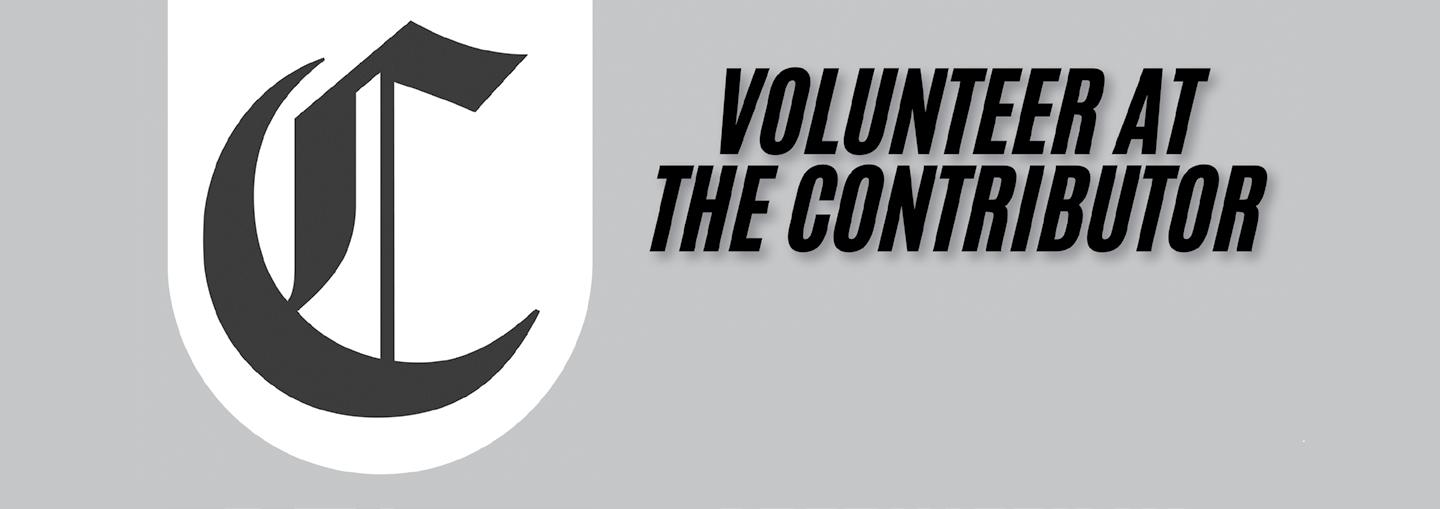
The Contributor is looking for regular volunteers in our vendor sales office from 10 a.m. - 3 p.m., Monday - Friday. Email info@thecontributor.org to apply!
Written by Chris Scott Fieselman, Vendor #0015
When they read what I’ve written, I’m right there with them. When they read what I wrote, I left them a note. I left them a message, Of Promise and Hope, To make it through, A difficult-situation, And find a way to cope?
I told Dear Old Dad, “I want to make a difference. I want to take on the Challenge, To make something Change” He said, “Yes my son, One day it will come, They will remember your name. You’ll play the game, Till you’re damn near insane, And eventually achieve, Lasting Post-Mortem-Fame, And Enduring Acclaim, Because nothing will ever, Be the same, As it was before you came.”
A man who can present, Another song a week, In Nashville, Music City, Tennessee. Released on Wednesday morning, Every other week. Like a 45 record with, With sides A & side B. Like playing a game, Of Hide and Go Seek, With the people, looking forward, To the words that I speak.
Not every city, has a street paper. No other street paper has got Chris Scott. Something that doesn’t, Amount much to nothing - ($), Doesn’t matter a whole Hell of a lot. Creativity takes a lot of time, To say what needs to be said by someone, And somehow make it rhyme. Talk about a Mountain to Climb? That’s what it takes to touch their hearts, And leave something behind? Like a Memory, forever of me, Gentle on Their Minds...
To all my Loyal Friends, And Faithful Fans, Till next we meet again? Keep looking forward till then?
Written by Chris Scott Fieselman, Vendor #0015
Well... Me and my buddies, Like to break it on down. Roll it up, strike a match, And pass it around. Then sit around the fire, When the sun goes down, Looking for what’s yet, To be found, In a sound.
Strum a little here.
Pick a little bit there.
Find the words that work, Takes a bit of flair.
But everybody pooling, What they’ve got to share, Will give us a song, That lives on, When we’re gone.
Another all-nighter, For a couple song writers, Sitting ‘round the fire, Pen and Paper in hand. Put us all together, Find a way to say it better, By improvising something, That can never be planned.
Strum a little here.
Pick a little bit there. Find the words that work, Takes a bit of flair.
But everybody pooling, What they’ve got to share, Will give us a song, That lives on, When we’re gone.
Now... It doesn’t happen often, Maybe once in a while. Some people get to travel down, That miracle mile. When forces collide, And dreams co-inside, With the perfect blending, Of unique and different styles.
Strum a little here.
Pick a little bit there.
Find the words that work, Takes a bit of flair.
But everybody pooling, What they’ve got to share, Will give us a song, That lives on, When we’re gone.

ACROSS
1. Flows’ partners
5. “When Harry ____ Sally...”
8. Sound of laughter
12. *”Hide” behind the bush
13. BÈbÈ’s mother
14. *Age units in the woods
15. Rum cake
16. Placido Domingo’s solo, e.g.
17. Concluded 18. *”Into the Woods” star Anna
20. Come clean, with up 21. Terra ____ 22. Urge Spot to attack 23. One of seven gnomes
26. Prior to the present (3 words)
30. FEMA provisions, e.g.
31. Erratum, pl.
34. Int. org. in Brussels
35. Merge
37. Time frame
38. Right-hand page
39. 1920s art style
40. Cause of wheezing
42. Like The Hot Chili Peppers
43. ____ God we ____,” on U.S. currency
45. Some vipers
47. Clairvoyant’s gift
48. Source of chocolate
50. Form of payment
52. *Edible fungus
55. Multi-layered cake
56. MÈlange
57. Utah’s national park
59. Bake an egg
60. Plural of #22 Down
61. *”____ the Woods” play and movie
62. Prefix for multiple
63. Japanese honorific
64. Barely got by
DOWN
1. Singular of #1 Across 2. *Woodpecker’s pecker
3. *One lost in the woods
4. Posture
5. Boy Scout’s badge
6. “Fear of Flying” author ____ Jong
7. *Furniture wood
8. *Conifer’s dropping
9. Peters out
10. Def Leppard’s “Rock of ____”
11. Psychedelic drug, acr.
13. St. Valentine, e.g.
14. Equip again
19. One of Seven Dwarfs
22. Rejuvenating spot
23. ____ Arabia
24. Wrinkle-prone fabric
25. Declaration of Independence, e.g.
26. 2002 Winter Olympics state
27. Mother-of-pearl
28. Weasel’s cousin
29. *Golf’s great
32. Catch one’s breath
33. A in MOMA
36. *Scientific study in woodlands
38. Meteorologist’s tool
40. Nile reptile
41. Masculine one and proud of it, pl.
44. Theater greeter
46. Something extraordinary
48. “Mea ____,” or “my fault”
49. Hailing from the East
50. Type of salmon
51. *Seed covering 52. *Trunk growth
53. Sty cry
54. Speck
55. Recipe amt.
58. Go-ahead







Chaplain Dahron Annelies Johnson is a trans rights advocate who has become a mainstay of activism in the halls where the Tennessee General Assembly meets.
Johnson is working with the Tennessee Equality Project where she serves as the statewide Community Education & Outreach co-chair and the Davidson County Committee District Chaplain. She is a licensed chaplain with the Southeast Conference of the United Church of Christ, and has been an outspoken advocate for minority populations.
When you look up Johnson’s bio on social media, you will see the following: “Chaplain-y cyclist consistently calms chaos, cracks contradictions, collects conundrums, critiques culture, challenges ‘common’ consensus, committed caregiver.”
When I asked Johnson which ones of her c-descriptions she thinks come closest to who she is, Johnson homed in on “calms chaos.”
“I changed it from ‘creates chaos’ to ‘calms chaos,’” she explained. “Finding ways to maintain a sense of calm in the midst of chaos is important, and it goes with the chaplain-y piece.
“When somebody calls you into a situation and they’re in the midst of their felt or experienced crisis, it doesn’t help them when you get frantic and overwhelmed yourself. You lose your ability to help. So, for me — both for the preservation of myself and for those around me — I try to find paths forward of calm.”
You could be described as an activist chaplain standing up for equality. Why is it so important right now for people who represent marginalized populations to stand up?
Without intentionality, without conscious effort, we all fall into patterns of what we presume is “the right way of doing things.” It’s reflexive. We’re not engaged in conscious thought about how we’re acting and more importantly, why we’re acting in a certain way. We just assume that’s the way it is, and we do it.
And while that is true in all times at some level, we’re in a moment that is really trying to create substantive and monobloc structures through policy and law that define who is allowed in the center of our public spaces, and who is barred and pushed to the margins — who is being expelled from within our bounds and whisked away in the middle of the night.
If we don’t all take time to actively engage with what we’re being told is the right, proper order of the world without questioning any of that, we’re going to find more and more folks who were never a part of the “right order” excluded from our midst, either by force of law, or, by outright force.
We are seeing both happening right now.
The groups upon which such forces have an impact are pretty much all non-majority populations. We’re talking about immigrants, refugees, asylum seekers, trans folks, women seeking reproductive health care, who doesn’t look like the way one “ought” to look in public; those somebodys who don’t believe in one specific type of Protestant evangelical Chrisitianity. The list of those targeted by force — of policy; of policing, of incarceration and physical violence — just grows and grows.
So we need any and all people who will give voice, who can, to ask the question publicly: “Why are we doing this?!” Because we need to be con-
BY JUDITH TACKETT
scious of why we are doing all this.
And we need folks from both communities — those that are feeling the impacts of these paired forces of law and brute force; as well as those who are allied with them, who are in all the other spaces that non-majority populations are all too often excluded from — to speak up. We need those suffering the impacts to speak up about their experience of being at the receiving end of those various forces, those various powers. And we need those allied with them to speak up for us in those spaces where we are not. We need them to ask questions and say: “Where are we directing the force of our government, of our police, of our military, against these various communities?”
We do ourselves a great disservice if we don’t stand up for the many. And the many is made up of all of the populations that have never had an opportunity to speak in places of power; who haven’t had consistent opportunity to change things in substantive ways — or if they ever have been, are being increasingly marginalized in this moment.
That’s why I feel called to do the work that I do: work done through action; through simply showing up; through going to folks on the ground and asking them what their needs are and then acting from there.
Talk a little about your work in the Tennessee Legislature. What are your focus areas?
So, with the Tennessee Equality Project, I serve as a Co-Chair of their Nashville Committee, working with them on education and outreach. This would be on a variety of matters of importance to LGBTQIA+ Tennesseans throughout the state. Sadly, there are a myriad number of ways that the General Assembly has tried to legislate against our communities: from bathroom bills to anti-gay marriage laws; from laws barring us from sports fields to making the medical care we need illegal — and any number of other issues.
Even if LGBTQIA+ advocacy is your starting point, those issues then immediately have connection and intersection with so many others as well. So, for example, if you’re a gay person who is also Black, well, now you’re dealing with not only anti-gay policy but also with the long-institutionalized, centuries-old ways in which we have enculturated racist practice, racist language, racist policy into the very fabric of our day-to-day life.
So the impacts of that anti-LGBTQIA+ policy are magnified if you are part of any other overlapping non-majority community as well. As another example, let’s look at houselessness. Because there is such prejudice against LGBTQIA+ persons, they experience houselessness at a higher rate, which means that to work on the safety of LGBTQIA+ persons is to work on finding and building housing solutions as well.
It’s to say, even if my focus is to come in and just start most immediately with LGBTQIA+ issues, you can’t not be concerned about any and all of these other issues that are part and parcel of that.
What wins do you see?
We’ve had many really amazing opportunities to let folks’ voices be heard over the years. Now certainly there are times when a win is that a certain piece of legislation doesn’t pass. Often in Tennessee in the LGBTQIA+ space, that’s the win for us, what we’re glad for — when another
harmful piece of legislation doesn’t cross the finish line. But the wins we take the greatest joy from are when we see people stepping into their own voice.
I’ve been a district captain for a number of our Day on the Hill [events], and there’s a person who has come with us for the last few years. In the very beginning, she said, “You know, I just want to come and see what these conversations are like. I don’t really want to participate.” I reassured her, saying “That’s fine; whatever you need to do to feel comfortable in all this. We’re glad to have you!” And that’s exactly what she did. She joined a group of ten of us in a representative’s office and a senator’s office. Then the next year, she did the same thing.
Then, in the third year, she came in saying she was going to do the same thing. We went into a meeting with one of the Senators, and all of a sudden, right in the middle of the meeting, she raised her hand, and started telling the story of their child, and the impacts she felt a proposed piece of legislation would have on their child, and the fears that she had as a parent.
That moment was by far the most powerful moment in that meeting. And for me, probably of that whole legislative session because the whole room of us stopped and heard the power and her parental passion. That to me was the biggest win. Every single time something like that happens, that’s the biggest and best win of all. That’s better than all the legislative wins in the world in some ways.
You are also involved in local government, serving on the Metro Human Relations Commission (MHRC). What excites you about that work?
I couldn’t have been more surprised and humbled when I was asked by my city council person if I would be interested. It wasn’t on my radar. After I received a nomination to the MHRC and I started reading about it, of all the places in local government that I could have been asked to consider, serving on the MHRC was absolutely it.
This is a 60-year-old body that was stood up specifically for an anti-discriminatory mission. It is the Title VI body for our city. It oversees any concerns about discriminatory or inequitable use of funds that have any type of federal tie back. And over time, the mission of our MHRC has really broadened. If you’re in equity work, then it’s got to be equity for all.
MHRC is the truth teller body that can say, “Hey, we are not treating people fairly. We are not doing things in an equitable way.” This was certainly the role we took on as part of the conciliation negotiations and agreements that happened with Metro Arts, for example. And just recently, MHRC was able to negotiate an agreement with Metro Legal that folks with lived experience [of homelessness] who served on committees would be able to continue receiving the small compensation they had been getting. It’s not a huge amount of money, but at least they’re able to get that.
Another big MHRC issue is to continue to work on a range of language services access across our government spaces to ensure that there are language services there for all populations to participate in the governing process.
One of the biggest things on our plate right now is on the Unified Housing Strategy and the
zoning changes — our plans throughout the city regarding housing, regarding zoning, and trying to hear as many voices as possible about how we can make those changes in the most equitable, anti-discriminatory ways that we possibly can. It’s really exciting to be part of a body that does that.
Are marginalized people, those with lived experiences, included in solutions? Are they truly heard?
Not as much as they should be, and more is always better.
We have over time [implemented] all types of policies that make committee rooms feel really gate-kept, and separate, and beyond where I can go to offer voice, or give feedback, or heck, even attend and listen in on. For the folks doing the organizing of the meetings themselves, if we have the ability and power in these spaces to be in the spaces, have the meeting, and organize the thing, then we need to be intentional about all the real, basic stuff.
Where is the meeting going to be? What day of the week? When in the day is it going to be? How late is it going to go? Is there transportation? What types of transportation is it going to take for people to get to that particular place? Is there going to be good transportation options for people at the end of the meeting — especially for those who may have a disability? Are the meetings accessible?
I mean we need to ask all these really practical questions. The more that we do those things, the more we not only make it physically easier for a broader group of folks to come, it also sends its own signal of invitation to more people and more voices. We don’t do a lot of any of that, so we shouldn’t be surprised that the range of folks we really need in the room to help make broad-minded and equitable decisions aren’t there as much as they should be.
At the same time, we also need to have a lot of room for understanding and teaching and just patience for the variety of experiences that people might have in coming into a room like that with all its expectations and protocols. A lot of people, even those who have been coming to many meetings, don’t know the first thing about Robert’s Rules of Order. So another thing that those organizing meetings and spaces and rooms like this need to do, is to help folks feel like they have the opportunity to share their voice, regardless of how nuanced their understanding is of agendas and protocols and all the rest.
It is incumbent upon organizers, government and policy folks — even a volunteer commission like the Metro Human Relations Commission — to do everything we can to open the invitation as much as possible.
How do you find hope?
The mom in that meeting! That’s it for me. Raising her hand and speaking up after all those years just observing? That’s a sign, that’s hope, for all of us.
So many of us have been trained, whether we realize it or not, not to trust the power of our own voice. And each time I see someone step forward from that uncertainty into even the tentative first step of trying, what I see is a person realizing there is community already there and waiting for them.
BY RIDLEY WILLS II
The Waffle Shop began in about 1925 when the women of the church at First Presbyterian put on the event at the beginning of the Christmas season. Earlier called the Christmas Bazaar and Waffle Shop, it became a tradition at First Church and continued to be held annually through 1954, the last year that the church was located downtown on 5th Avenue North. Because the Downtown Presbyterian Church, founded in 1955, assumed responsibility for the historic downtown building, it also assumed responsibility for continuing the Waffle Shop, which benefits the homeless and the poor in the city’s center.
One of the women at the Downtown Presbyterian Church who provided early leadership in putting on the Waffle Shop was Mary Thompson (Mrs. Sam) Orr. With her, Mary brought her cook, Katherine Douglas. Thirty-seven years later, in the early 1990s, when Katherine was 84 years old, and still cooking waffles, she reflected on the many years she had cooked waffles at the church. The recipe that we still use was hers. Here it is: “For each batch, use two dozen eggs, a pound of flour mixed with a little salt and baking powder; a gallon of milk, and I have been using 2 ½ cups of vegetable oil
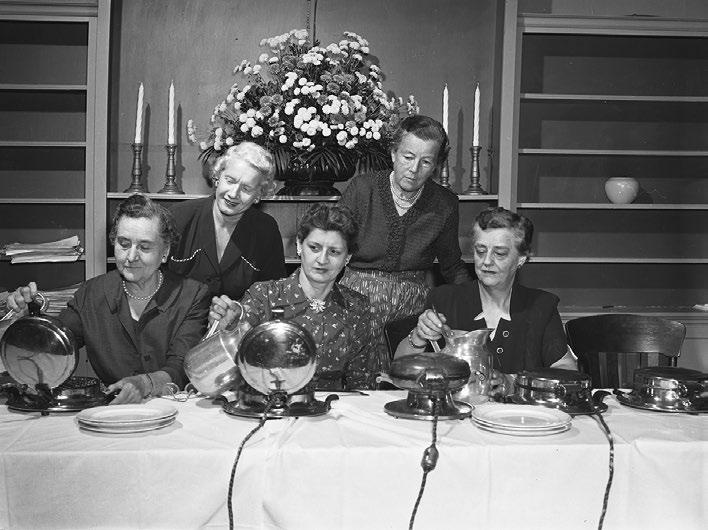
for the past three years and it works out beautifully.”
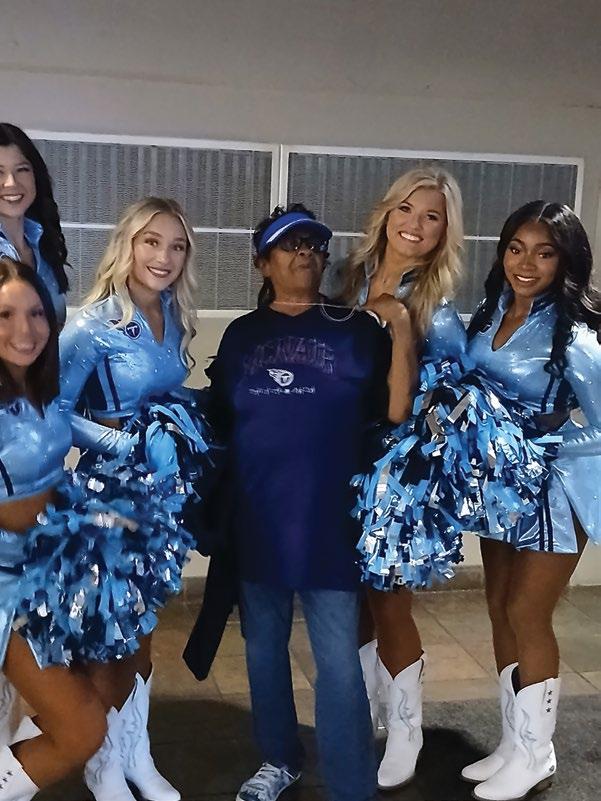
Katherine said the recipe makes more than 50 waffles. Avondale Rawls, who served as docent at Downtown Presbyterian for many years, described Katherine as “a fixture” at Downtown Presbyterian, and added that “she comes in on Monday and gets everything going and that’s it.”
For the past several years, Denny Harris and Mary Taylor have co-chaired Waffle Shop, which continues to be supported by members and clergy from First Presbyterian. The Waffle Shop has baked goods, books and crafts for sale.
Members of the Downtown Presbyterian Church are grateful for the community’s long-standing support and encourage anyone to come for the 101st annual Waffle Shop on Thursday, Dec. 4, 2025. The price is $20 if you buy a ticket in advance or $25 at the door. As with every year in the past, the money raised goes to feed our city’s unhoused.
*Ridley Wills II died on Jan. 16, 2025. He wrote this piece before his passing, and new details of this year’s event have been added.

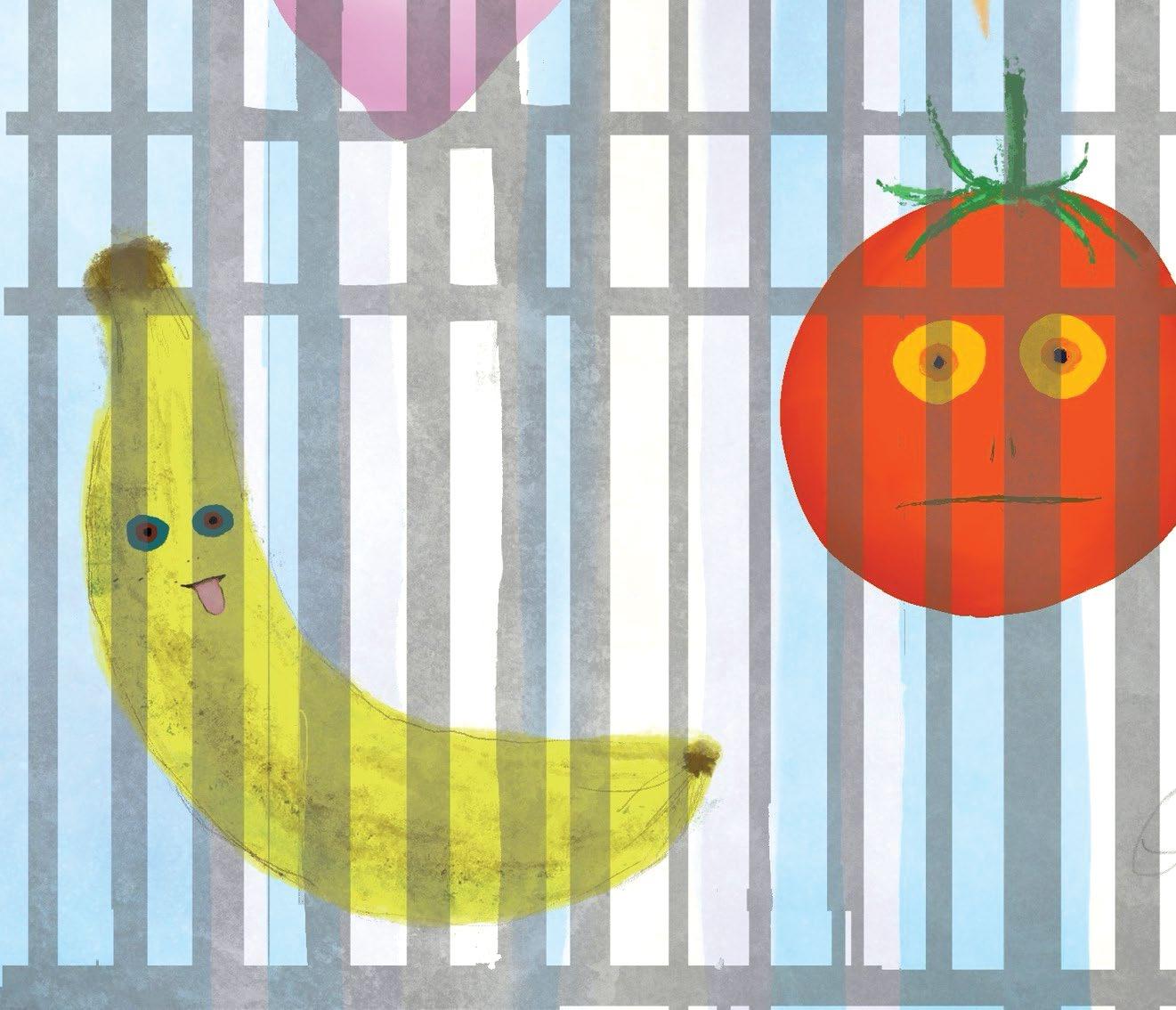
Hundreds of thousands of Tennesseans are expected to lose access to food assistance beginning Nov. 1 as the federal government shutdown drags into its fourth week, halting funding for the Supplemental Nutrition Assistance Program (SNAP).
In a press release on Oct. 30, Gov. Bill Lee blamed Democrats for the impasse and announced the launch of a new website, FeedTN.org, which he said will “connect Tennesseans with resources and
face a lapse
BY AMANDA HAGGARD
opportunities to serve.” The site compiles information on statewide food resources and volunteer opportunities.
Lee’s statement did not address why Tennessee isn’t tapping into its nearly $2 billion rainy-day fund to provide temporary food aid. Instead, the governor’s office said the state lacks the ability to distribute SNAP dollars directly: “The SNAP program is federally funded and operated, and Tennessee is unable to utilize state dollars to provide the benefit, as
states do not have a mechanism to load benefits onto customer cards.”
The Tennessee Department of Human Services (TDHS) posted a similar message, noting that “if the federal government shutdown continues, federally-funded SNAP benefits for November will be unavailable.” SNAP, which provides grocery assistance to nearly 700,000 Tennesseans, is one of the most widely used federal programs in the state.
For many food banks and mutual aid
groups, that cutoff could mean an immediate crisis. One of the state’s largest resources for folks in need of food is Second Harvest Food Bank. President & CEO of Second Harvest Food Bank of Middle Tennessee Nancy Keil wrote in a memo that this lapse in benefits is “one of the most serious challenges in recent memory.” While the state and others continue to push food banks as a temporary solution, Keil writes that the lapse in benefits will go so much further beyond that.
Donate food to local pantries and food banks. Find meal and food box resources at wttin.org.
If you are in a position to help, start asking your neighbors and community groups near you how you can help.
Follow the Tennessee Justice Center and Open Table Nashville for updates and action alerts.

“The ripple effects will be felt far and wide, impacting families, grocery stores, farmers and food producers alike,” Keil writes. “When SNAP dollars disappear, the loss touches every corner of our community. This crisis follows earlier federal cuts that reduced our USDA food supply by 30 percent and eliminated $3 million in funding for local food purchasing programs. These setbacks have created a compounding challenge: less food is available just as more families are turning to us for help. And as we’ve seen time and again, hunger doesn’t wait.”
In rural communities, they’re expecting to see higher client intake as a direct result. The TN Lookout writes that one in five residents depend on SNAP in rural communities compared to the average of one in 10 across the state. A food bank volunteer in Hancock County named Marilyn Murrell told them she expects a flood of new clients. “We don’t have much, but we’re going to try our best to have
enough food,” Murrell said. “It’s sad that it’s come to this. This is America, and no family should be in this situation.”
Advocates also warn that the timing could not be worse. Even if the shutdown ends before November, new federal work requirements for Able-Bodied Adults Without Dependents (ABAWDs) are scheduled to take effect, restricting SNAP eligibility to just three months in a three-year period unless recipients work, volunteer or participate in job training for at least 20 hours a week.
For people experiencing homelessness, who were previously exempt, the new rules could mean losing their only reliable source of food.
“It’s extremely difficult to maintain employment while experiencing homelessness,” nonprofit Open Table Nashville said in a statement. “Cutting off access to food sources makes that even more difficult. It is cruel and unnecessary.”
The nonprofit said it plans to provide grocery gift cards and food bag deliveries in the coming weeks to meet the need for food.
Advocates like Sarah Champion, who works on homeless outreach at the community center The Allsorts Lobby and on the housing team at The Contributor, also point to the importance of real community and not just donations to bigger food distribution centers.
“People who are disabled and use the bus for transport are going to have a really hard time going for a week or a month and taking it on the bus and getting back to their house,” Champion uses as an example in a social media post.
Another example are unhoused people, who often don’t have a way to store or cook food, and rely on food stamps for prepared foods, which don’t often come in a food box from food pantries. There’s also the fact that some pantries require identification, which may not be possible for some people living on the streets.
“While I think it’s great to donate,” she says. “Frankly I’m still scared for what’s to come, and want to throw out that my crew will have come on a year of feeding people weekly … We need all hands on deck and more than just donations, [we need] people actively helping people access food.”
Meanwhile, a coalition of Democratic officials from 22 states has sued the Trump administration, seeking a court order to force the release of food assistance funds. No Tennessee officials have joined the suit. State House Democrats have urged Gov. Lee to call a special session to fund the program, while U.S. Senator Marsha Blackburn has signed on to legislation that would fund SNAP separately during the shutdown.
In Tennessee, the average family receiving SNAP gets about $340 a month to buy groceries — often already just enough to make ends meet. Without it, many will go hungry.
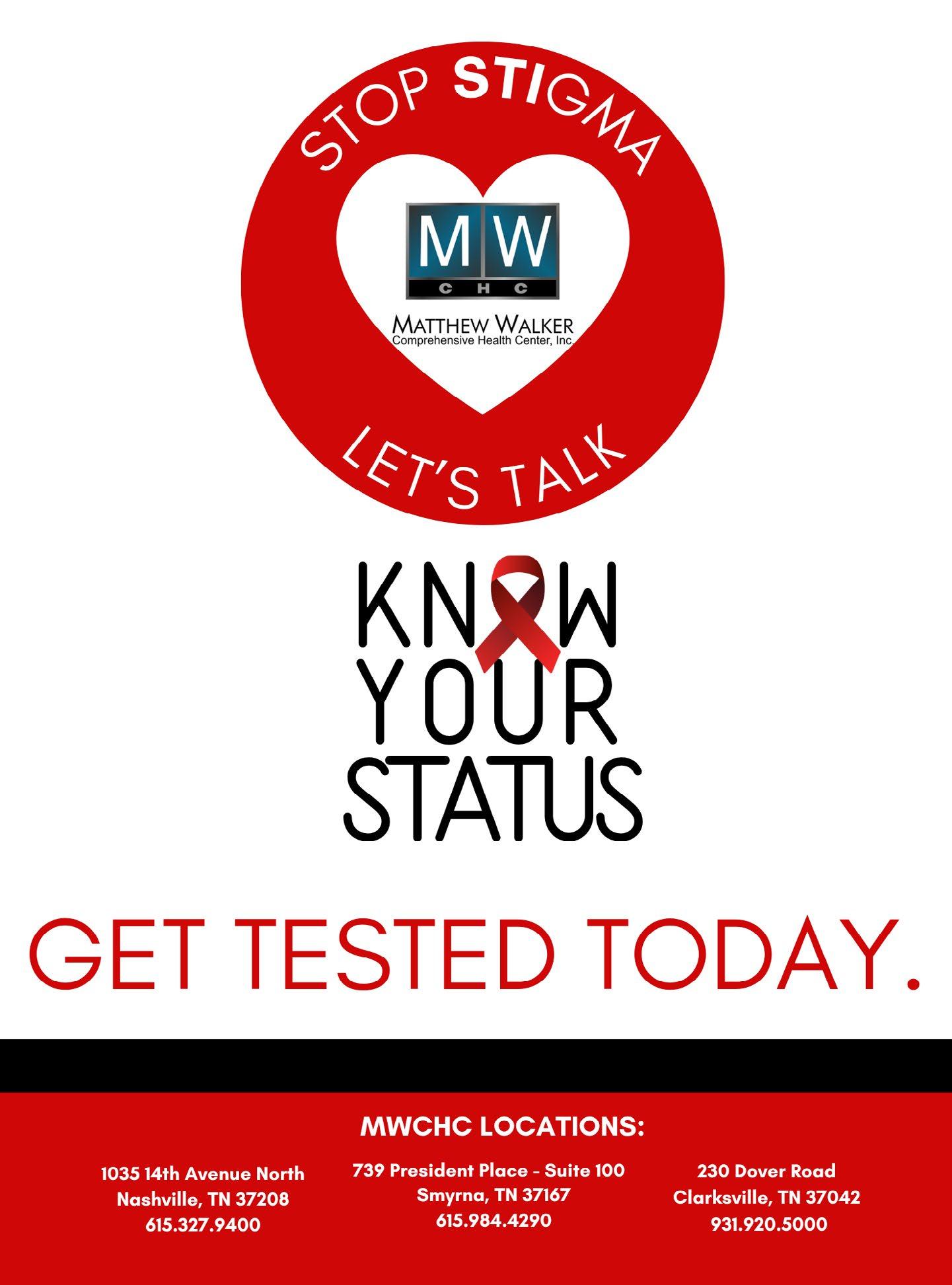
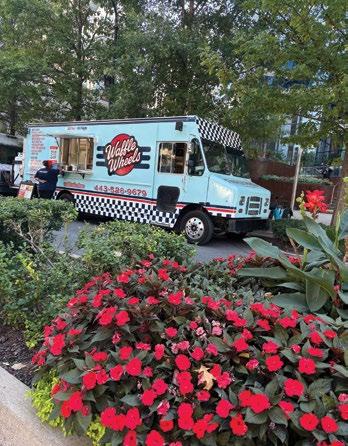
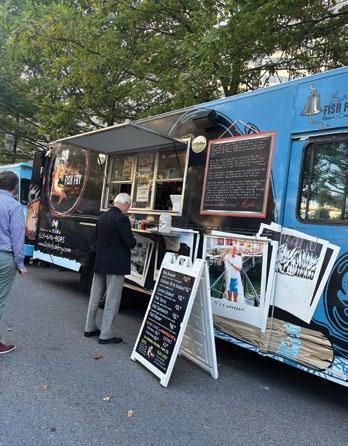


Nashville’s Thursday food event without the brick and mortar. The place to explore is Deaderick Street between John Lewis Way & 4th Ave N., on Thursday afternoons. Since
about the early or middle part of 2010, there have been various amounts of sensational scenes and diverse arrays of culinary offerings from the well known hot chicken & barbecue
BY M.E. MARTIN, CONTRIBUTOR VENDOR
to ice cream & bao. Let’s not forget tacos and burritos, southern comfort food, gourmet burgers, vegan and vegetarian options and ethnic cuisine. Now these food trucks have
been here for the local residents and business workers and bus tourists as well. They have open arms to all. Therefore on Thursdays be there or be square.
Acupuncture is believed to have originated in China around 6000 B.C. It experienced a resurgence in popularity in the U.S. in the 1970s when positive results were found in treatments. How did they have a detailed map of the human nervous system in 6000 B.C.?
I first experienced acupuncture when I was working as a property manager for a man who owned rooming houses in Everett, Wash. I had what seemed to be a muscle behind my left shoulder blade contracted into a knot. I attribute this problem to previous work driving tent stakes into asphalt on the carnival circuit. Because the knot was behind the shoulder blade, a massage therapist would not help, nor would a chiropractor. I was in a lot of pain and took to drinking two quarts of beer and taking 2000 milligrams of Tylenol just to sleep through the night. I called a doctor to ask what to do. She said I needed to do something or my liver wouldn’t survive (lol).
So I found a kung fu instructor in Seattle that also did acupuncture and was quoted a fee. My boss even offered to pay for it so I made the appointment. Two treatments later, I was cured and never had another problem from it. Then many years later I was in Telluride, Colo., working in a restaurant. I began having bouts of tearing up or crying for no reason at all. And it scared me. I thought I was losing it. At first we all thought it was altitude sickness. I went to the hospital and was tested for everything you can think of. They even tested me for STIs, and I informed the nurses that my love life had been stagnant for about ten years so it couldn’t be any of those things (LOL). The doctor educated me on altitude sickness and informed me that I was healthy as a horse, and from a good gene pool and that I would probably live to be 100. They said it was not altitude sickness but stress, and recommended acupuncture.
BY WILLIAM H., CONTRIBUTOR VENDOR
I turned 21 on Dec. 24, 1991. I was hired to a fishing company called Deep Sea Fisheries out of Seattle in Washington state. So the company paid for my airfare to Dutch Harbor, Alaska to catch my boat. I had never been on a plane, so it was interesting. I flew from Seattle to Anchorage, Alaska. Then, I took a small, twin engine plane with a goofy pilot. It was cool. When I boarded that plane I said no turning back, now the party starts. The pilot flew close to the mountains like we were going to crash. We finally go to Dutch Harbor, Alaska, and I got on a boat called the Deep Sea Harvester. It was a 185 footer catcher-processor crab boat. So, it was about October of 1991 and it was my first time on a fishing boat. The water was 56 degrees and calm like glass and I got seasick.
That’s a messed up feeling. So, a couple of crew members told me what to do to fix my seasickness. They told me to go outside to the back of the boat and look at the horizon where the sea comes together with the sky. After I did that, I never got seasick again. I got my “web feet.”
So, I learned how to catch crabs and how to process crabs. I started as a processor then moved up to a deckhand position. I had a bunker named Mark. He was a cool, awesome guy. He’s an expert fisherman. One day out on the Bering Sea in a storm, Mark was tying the crab pods and the boat shifted and Mark fell from the top pod and fell all the way to the bottom pod and he was air lifted out of the boat.
It was now Dec. 24, 1991 — my 21st birthday and I’m sitting up on my rack. I was hoping
Stress can also affect your vision. When I went to the appointment I was sitting in a chair looking at all these little plaques with sayings on them from the Dalai Lama that were hanging on the walls. I wear glasses and didn’t have them on at the time and so all of them were blurry and I couldn’t read them. Five minutes into the treatment and my vision cleared and I could read everything on those walls. The next day it was clear as a bell. No more tearing up. I have been getting treated ever since.
So if you are curious, in pain, or have stress, I can tell you the first treatment I got in Seattle cost $165, the one in Telluride cost $200. My acupuncturist in Marathon Key Fla. was $200 for the first appointment and $150 per thereafter. So if you have any desire to try this, make an appointment with Encircle. They treated me recently and I really needed it. They did a really good job, and I am glad I went! So go try it, and be glad too!
to be getting drunk and have a date for my 21st birthday. One of the crew asked me to come to the galley to sing Christmas songs. I didn’t want to, but I came down to the galley anyway. The cook was making something and then the skipper came to the galley and he was eating what the cook was making and the cook told the skipper that it was my birthday cake and everybody sang happy birthday. But that’s not the end.
Two days later, we came into Dutch, Alaska for supplies and took a three-day leave. So the whole crew got ready to go ashore. The crew all got ready and told me that a cab was waiting for me. I left the boat and was ready to finally party for my 21st birthday. I met a 19-year-old whose boat was tied to our boat and I told the kid, “You’re coming with me to celebrate my birthday.” He agreed so we got in the cab. The cab driver is the person who gets things for the fisherman. We went to the Unicy hotel and bar.
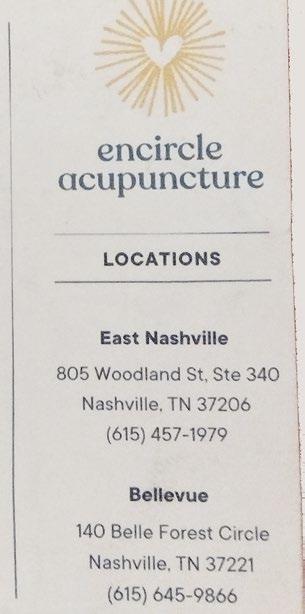
When we got there, the first thing I asked was where is the bar. They pointed me to the bar and I went to buy a drink. I saw there were 15 bar stools, but nobody was at the bar so I went back to the front desk to pay for my room. When I got there, the room was already paid for, so I go back to the bar and the female bartender came out from the back and asked me what I wanted. I told her a shot and a beer. She asked for my ID and when I showed her she saw it was close to my birthday and said that if I had come in on my birthday I could have had a free drink. I told her I was working on the boats on my birthday and she asked if I was a fisherman and I said yes. Then the crew came out going Happy Birthday! And the bartender told me that I can’t order a drink until I drank 15 shots — one for each bar stool. It lasted all night. And while we were partying, the cab driver came in the bar with women and you know what happens. The best birthday ever. God Bless.
Imagine a person, a man, is sleeping outdoors, and time after time he has refused to truly engage with a street outreach worker. He stays by himself, has accepted water, food, hand warmers and other daily living necessities, but he does not seem interested in talking about housing, health or mental health services.
The person, let’s call him John, is observed lying on the streets (as benches have been removed around the city), rain or shine. He uses bottles to relieve himself in, and at times you can see that he has defecated on himself. John clearly needs help. He has been locked up regularly for public intoxication or obstructing a passageway. He is also known to the area’s hospital as he is submitted for complications from his diabetes and sometimes for frostbites or heat-related illnesses. At this point, John does not trust anyone anymore.
Then imagine a street outreach worker, Jane, who is fresh out of college with a social services degree. She is a staunch advocate, in her early 20s, and ready to help John. Soon she realizes she is out of her depth. She has reached out to other case managers, even her former teacher, and gotten a lot of tips on how to approach John, but nothing seems to work. She called mental health services on him, and a team submitted him for observation to a psychiatric ward from where he was released within 72 hours. Finally, she moves on and quietly leaves him some food and water on her rounds.
If the federal government has its way — or even our state legislature — we would arrest John and force him into treatment to give him the services he needs. That sounds good, right? The problem is that John still does not cooperate. The next step, according to federal documents we have already seen, is to lock him away indefinitely in a psychiatric facility at a cost of up to $2,000 per night and pump him full of medication.
Unfortunately, we don’t have enough of those expensive beds. So, then – as he does not cooperate, he will eventually be locked away for good in a mega shelter or a government-sanctioned camp at a high cost.
While this may sound like fiction to you, it may very well become a sad reality for the most marginalized people in our communities. Unless, of course, we stand up as one and say, this is not how we treat our neighbors!
But there is another course we can take at the local, the city level.
What if our outreach worker, Jane, had the ability to call in an interdisciplinary street outreach team that is trained to work with folks like John?
For years, I’ve been advocating for an interdisciplinary street outreach approach in Nashville. But funding was never available to hire the needed experts many of us in Nashville envisioned, including health professionals such as a nurse practitioner and a psychiatrist (at least part-time).
There are a variety of different street outreach models, which are captured in-depth in the “Outreach Focused Street Outreach Framework” published by the National Alliance to End Homelessness and available on their site at endhomelessness.org.
BY JUDITH TACKETT
To give you an idea of the different types of street outreach programs, I lifted three examples from the NAEH document (look it up for a comprehensive list of outreach program types):
• General Street outreach, “is designed to connect individuals experiencing unsheltered homelessness to emergency shelter and housing solutions; it also provides immediate, life-saving interventions. In many communities, these street outreach workers are responsible for conducting Coordinated Entry Systems (CES) assessments and are integrated into the broader CoC.”
• Clinical street outreach “encompasses health-, mental health-, substance abuse-, and co-occurring-focused outreach. This may include street medicine initiatives, where medical professionals operate mobile medical vans or deploy street outreach specialists to deliver healthcare services to those who are unable or unwilling to access traditional clinic settings or local healthcare systems. Clinical street outreach also provides linkages to voluntary mental health or substance abuse services for individuals with serious mental illness (SMI); place-based substance use disorder treatment focused on safety and harm reduction; mental health and substance use treatment; connection to main-stream resources; coordination of housing and supportive services’ and integration with the Coordinated Entry System.”
• Multidisciplinary Street Outreach teams “bring together professionals with diverse backgrounds and expertise, including peer support workers, behavioral health specialists, and physical health practitioners. By combining different skill sets and perspectives, these programs can provide comprehensive support tailored to the complex needs of people experiencing unsheltered homelessness. Multidisciplinary work is best when roles, expertise, and expectations are clarified.”
Just recently, I found a document I drafted in 2012 while I was working at Metro and trying to get dollars to create an Assertive Community Treatment (ACT) Team going. ACT is a teambased approach that includes professionals with different expertise such as nurse practitioners, a psychiatrist, social workers, peer support specialists, and professionals trained in substance abuse, wellness, and employment.
While some ACT teams are assigned to work with people once they enter housing, others start identifying people with severe mental health and/or substance use issues who are still living on the streets. Then they assist them with the housing process as quickly as possible while providing wraparound services, and the entire team continues working with that person once they are housed.
In other words, they follow people from the street to housing and stay with them. Considering that the most difficult adjustment period for people with intensive health and mental health needs is the immediate 90-day transition after they first moved from the streets into their own
housing, having a familiar team that has already built trusting relationships with their client is a great approach to stabilize people.
ACT teams have the experience to build relationships with people like John. It may take some time to get there, but developing trust and focusing on a long-term approach will prove more effective and lasting than a quick-fix, underfunded effort aimed at removing people out of sight.
We know this because we have enough research and evidence to prove what works. What is more, an interdisciplinary approach as offered by an ACT team would be available around the clock to provide John with the support he needs when he needs it.
I have seen such an approach when touring a program in New York City. They had an interdisciplinary outreach team with access to immediate shelter, and a specialized temporary housing program offered for people with severe mental illness. People could stay in those beds, which were observed by nurse practitioners 24/7, as long as they wanted. The goal still was to help every person access permanent housing with the needed wraparound support services as quickly as possible. For some, that meant the organization’s own supportive housing program. Others found housing opportunities elsewhere but were still supported, at least for a transition time, by the organization.
As a visitor to another city, things generally are presented in a positive way. After all, the point is to showcase to each other how great we are.
However, in this instance, I had spent a week with a small group of experts from cities in the U.S., Canada, Colombia, Mexico, Greece, and France. The goal was to have honest conversations about what works, what doesn’t work, and even if programs work — to understand that it is not easy or fast.
Let’s get back to Nashville. I was excited when, in 2022, Metro Council passed a resolution dedicating $9 million in federal one-time funding designated to stand up an ACT team. Well, that never happened.
ACT teams, on first examination, are considered a high-cost program. They have low case management ratios, meaning that on average a case manager/social worker does not work with more than 10-15 people. However, when we compare the per bed cost of these types of programs, they are definitely cheaper than putting people in jail (the cost is $115 per night in Nashville) or an in-patient psychiatric hospital (up to $2,000 per night).
What is a reasonable starting point to develop such an interdisciplinary outreach approach in Nashville, even if our city does not want to spend the money on an ACT team?
I was observing a recent community meeting in North Nashville where neighbors of the Nashville Rescue Mission’s women’s campus attacked staff from the Nashville Rescue Mission and wanted to bully them into spending $100,000 in security. They may succeed.
Now, in defense of the neighbors. They had understandably lost their patience and had documented proof of situations where people ex-
periencing homelessness came on their porches to hang out, stole delivered packages, defecated in their yards, etc. I would not want to live like that in my home, would you?
But I also believe an interdisciplinary street outreach team could do more than one or two security officers who would only call police — an act that the neighbors themselves have been trying for months.
Metro has increased this year’s budget for the Office of Homeless Services (OHS) by $5 million to a total of $11 million. Imagine if OHS took the lead and were to take a planning and coordination lead and put some money into a program that they outsourced to staff a true interdisciplinary outreach team. In addition, OHS could designate two to three of its own outreach workers to collaborate with this team, especially in the beginning.
Here is where such a team would start:
• Engage with the neighbors and take the time to truly listen to their complaints.
• Identify the top 10 culprits, so to speak, and engage with them to understand what the issues are in terms of mental health. Start with those 10. Once a person is housed, make sure they have the appropriate service continuation. And immediately add another person to maintain a case load of 10 people in this area.
• Expand the program to other hotspots such as the folks who sleep on Drexel Street between the Mission’s men’s campus and Room In The Inn and identify the people with the most acute need in that area/those areas as well.
• Ensure that the team is not working in isolation and is working closely with the Nashville Rescue Mission, Room In The Inn, and other providers in the area. That team should also be connected to resources across the city including different city departments, nonprofits and for profits to offer health/mental health, recovery, and housing services. This is exactly the type of coordination OHS is charged to do.
• Stay connected with the neighbors and communicate with them throughout the process without violating people’s privacy. Continue to listen to the neighbors and if there is no progress over time, evaluate what next steps could be, including honest conversations that need improvement, since these types of efforts seem to show results in other cities.
It would take some sincere investment and effort on the city’s part and true leadership. But it is doable, and I bet it would show results more quickly and sustainably than spending $100,000 on a private security firm. Even a scaled down version of what I described above could be more effective.
What is our city’s goal? Is it to make homelessness invisible or is it to solve homelessness? I guess, moving forward, it’s up to city leaders to show us through their actions where their true priorities lie.
Judith Tackett is a longtime homelessness expert and advocates for housing-focused, person-centered solutions. Opinions in this column are her own.
Yikes! What is that thing on the kitchen tile? Is it a smushed bug or a dead mouse? Oh wait, it’s just the same wet leaf from the yard that startled me twice today already. I swear, this time of year I always end up tracking those into the house. Maybe I could do a better job wiping my feet or leaving my shoes by the door. But at the very least, Libra — even if I don’t do the work to keep these out — I could pick it up and throw it away the first time I notice it. What’s the thing on the kitchen floor of your mind that keeps startling you as you walk past, Libra? What if you just picked it up?
I really liked my 2nd grade teacher. She sang clues during all the spelling tests. And 5th grade was pretty good too (although I never did get all the state capitals memorized.). I don’t really remember much about 3rd grade or 4th. They must have been important. I must have learned all kinds of things that I still know. It’s all just kind of a blur, Scorpio. And I know the past few years are starting to blur together too. But I think you learned things that you’re still using. And we’re all still learning. All the way from Mongomery, Alabama to…I wanna say…Casper, Wyoming(?), nobody’s got it all figured out yet. Your education is in everything you do.
Have you ever seen such a beautiful sunset, Sagittarius? Every cloud outlined in electric orange while the sun submerges into a bowl of glowing pink frosting. That’s the signature of a day well spent. We should get some dinner and go to bed. It must be nearly time for…wait, what do you mean it’s only 4:30 p.m.? But I did a whole day already! If you’re feeling worn-out, Sagittarius, just take a tip from the setting sun. You don’t have to keep working just because there’s still time on the clock. Rest when you’re ready to rest. There’ll be more light to burn tomorrow.
I went to the basement to get that box that has all my hoodies and jackets and warm hats in it. I haven’t found it yet, but I have spent that last hour sorting through this box of old cords. I think this one is the charger for the light-up wristband that I lost. And these are all phone cords but, like, the old kind. And this might be the cable I’ve been looking for that plugs in the taquito-fryer I’ve never used. Sure is cold down here, Capricorn. Wish I had a jacket. If you’re feeling distracted by the detritus of past intentions, remember that you actually don’t need any of that anymore. What you do need isn’t even down here. It’s in the hall closet.

I’m trying to keep up with the times so I got a pair of those wide-leg jeans. The jeans-guy at the jeans-store said they fit me perfectly! But on the way home they kept getting caught on the brake pedal in my car (sorry to the family that wasn’t expecting an emergency stop in the middle of 4th Ave). And then I tripped over the leg on the stairwell up to my apartment. And it took me 15 minutes to put them on this morning, because I kept getting them upside down and pulling the leg hole up around my waist. Are they supposed to be this wide? Anyway, Aquarius, it’s worth trying new things. It’s also worth reassessing whether those new things are working out for you.
Have you seen that sci-fi movie about how in the future all the TV game shows are all high-stakes battles for survival where only the strongest, fastest and smartest can stay alive long enough to win the prize of freedom? Yeah, I haven’t either, Pisces. But I always think it’s kind of weird when stories assume that human beings would rather watch people struggle, fight and flee than actually work together to make life better for each other. I see people help each other out all the time. And the people who are the best at helping are the ones who know that they have more neighbors than the people next door. Reminds me of you, Pisces. Keep it up.
Whenever there’s a bird chirping on TV, my cat looks around the house to find it. But my cat never pays any attention to the plot of the show. I doubt she could name a single one of the characters. As far as she’s concerned, it’s a show about how sometimes there’s a bird but usually there’s not. I guess we’re all tuned-in to different parts of the story, Aries. I know it’s frustrating to feel like nobody sees it quite the way you do. But I think it’s a good thing that we have each other when there’s so much going on. And I’m not the only one who appreciates your observations. For instance…wait…did you just hear a bird?
I drove through Corny McDogg’s for lunch again. My combo came with a large drink, a large fries, and two tofu-dogs. That means I got four game game-pieces to play Corny’s Go-Fish game! Two pieces were “The Anchor” (I’ve already got three). One was “The Mongrel” and one was a coupon for a free small soda! That means I only need “The Mast” and “Chester Hubbins” to fill my placemat-schooner and apply for the grand prize! This is basically my retirement plan so I’ll be here every day, Taurus. What are you doing to plan for the future? I can give you this drink coupon and one of my “Anchors” to get you started.
Well, life goes on, Gemini. But it’s mostly microbial life. Did you know your body is currently home to about 38 trillion microbes? And that after the part of the body you think of as “you” dies, many of those microbes continue to live and even thrive as they aid in decomposition. Those microbes may then go on to other biomes. Maybe in some way they’ll remember you as they catch a ride in the digestive tract of an underground cicada nymph. Perhaps some part of you stays with the microbes you now host. You’re not just living for yourself. It’s a good reason to drink some water and go for a walk today.
I was on the way to pick up a free microwave that I found on my community give-it-away page and I noticed a billboard I hadn’t seen before. It said “Where will you spend eternity?” It listed a couple of options but I can’t remember exactly what they were. It kind of stressed me out, Cancer, because I haven’t even decided where I’m going to spend Thanksgiving and now these billboards come along and try to get specifics on my long-term plans? But when I got to my destination Ms. Rhonda gave me a free microwave AND some cookies she just made and I helped her change the lightbulb on her front porch. As I was driving home I thought about you, Cancer, and how nice things can be when we spend our time taking care of each other.
I’m not afraid of being replaced by artificial intelligence, Leo. I mean, sure, my job may be at risk. But AI could never do what I do in my personal everyday life. For instance, today I forgot to bring my lunch so I ordered a burrito through the foodrager app, but I forgot to change the delivery address so they delivered it to my parents house which I figured out when my mom called to say one of my “friends” brought her a burrito and she loved it so much and did I make it myself? And instead of explaining everything I just said “You’re welcome, Mom! Glad you liked it.” and then bought some M&Ms from the vending machine. Could AI do that? You’re irreplaceable too, Leo. Don’t ever forget it.
Sounds good, Virgo, thanks! I know it’s important to reply to text messages and emails with some kind of affirmative acknowledgment of receipt. And I know I’ve probably missed a few of those with you lately. So I just wanted to let you know that that all sounds good, Virgo, and thanks for sending all that stuff. And that if you find you’ve fallen behind on those returns of recognition today, don’t worry about it. You can start again tomorrow.
Mr. Mysterio is not a licensed astrologer, a trained birdwatcher, or a certified jeansguy. Want more? Visit mrmysterio.com Or just give him a call at 707-VHS-TAN1.

When leaving mass a couple of Sundays ago, I came across this handmade sign on the sidewalk on West End Ave. The words, “Give Hope” jumped right out at me and I stopped and went back and photographed the sign and began to ponder its message. “Give Hope.”
The individual was soliciting somewhere in the area and this sign had a two-fold message on it’s simple cardboard background. Yes, receiving money for life’s necessities is of course quite necessary, but the headline, “Give Hope” got me thinking about The Contributor.
BY CHUCK C., CONTRIBUTOR VENDOR
Hope is something money cannot buy. Hope opens the door to hopefully a more productive, brighter future ahead for many folks. In December 2007, that is what I believe The Contributor created in many of our unhoused, marginalized and working poor. Hope!
We were all tired of sitting in labor halls waiting for a job that many times never came or being rejected by employers for jobs we were qualified for because of our past or current circumstances. The Contributor was an awesome opportunity to be our own bosses.
Run our own businesses and slowly begin to see real progress and improvement in our lives.
That was the beginning of Hope as I see it. Time and time again I’ve seen hundreds of my fellow vendors of The Contributor use that spark of hope to build stable, decent and productive lives for themselves and those whoa re dear to them. I include myself in this group and can attest too seeing hope become reality.
I am grateful I stumbled across this simple sign and realized how important the message of hope really is.
BY LORA V., CONTRIBUTOR VENDOR
This is the second-longest government shutdown in U.S. history, going on 28 days (at the time of me writing this). The longest one lasted for 35 days, surprisingly also under Mr. Trump (during his first term).
This shutdown is causing people to have to work without getting paid. This one also includes people going without their food stamps (SNAP). It is bad enough, but the children shouldn’t do without. This puts a
strain on the food banks.
It includes a lot of other stuff too.
A funny thing is Mr. Trump picks this time to tear down the East Wing of the White House and is going to build a new Ballroom. I think it is bad timing on his behalf.
Please, Mr. President, open the government back up so American people can live their lives.
SUBMITTED BY HOWARD P., CONTRIBUTOR VENDOR
A man checked into a hotel. There was a computer in his room, so he decided to send an email to his wife. He accidentally typed the wrong email address, and without realizing he sent the mail to a widow who had just returned from her husband’s funeral. The widow decided to check her email, expecting condolence messages from relatives and friends. After reading the first message she fainted.
The son rushed into the room, found his mother on the floor and saw the computer screen which read, “To my loving wife, I know you are surprised to hear from me, they have computers here and we are allowed to send mails to loved ones. I’ve just checked in. How are you and the kids? The place is really nice but I am lonely here. I have made necessary arrangement for your arrival tomorrow. Expecting you darling. I can’t wait to see you.”
SUBMITTED BY JIM P., CONTRIBUTOR VENDOR
“I am patient with stupidity but not with those who are proud of it.” – Edith Sitwell
BY JAMES “SHORTY” R., CONTRIBUTOR VENDOR
You are not feeling well. So you decide to go see the doctor. He decides to check you out from head to toe. He runs a lot of tests on you. You tell him what is wrong with you.
The years are catching up with me. Aches and pains are happening. You snap, crackle and pop in areas where that has never happened before.
So after he checks you and runs all these tests, the doctor comes back to you and tells
you what is wrong with you. He gives you a lot of meds for you to start taking. He tells you it is very important to take this medicine. Don’t stop taking it!
When you get home after, you stop to fill the medicine. You start reading up all the meds he just gave you. In the end, you read all the side effects on the meds. Is the side effects worth taking all your meds? You decide. Yes or no?
NORMA B., CONTRIBUTOR VENDOR
It has often been said that you never get a second chance to make a first impression
But life is a series of twists and turns
Each one leaving a mark or impression some deeper than others
Affecting who we are now and who we will become
If we are judged on the basis of a single act
Why should we strive to change?
Or try to make our lives better
If we are to be judged on the basis of something we said or did in the past
That would imply nothing we accomplish in life after that would matter
Case in point: Consider a criminal convicted of a heinous crime
A judge and jury hand down their verdict and the criminal does his time
When he is finally released from prison he is treated like pariah or a leper no one wants to touch
The physical bars of his prison cell that kept him in jail now gone
He is still imprisoned by invisible walls society has put in place
Supposedly to keep our society safe
But if the person has truly reformed
Should they be treated as they were before?
And how can we be sure they’ve changed at all?
Still I say they deserve a chance to prove what they have become
That they have risen above what they were before
I contend that it’s what we do
AFTER we’ve gained some experience and made some mistakes
Yes even grievous ones
That matters as much if not more
Than ANYTHING we might have done before
Because as human beings with a brain
We have the capacity grow and learn from our mistakes
So that things DO NOT have turn out the same
Proving that people are capable of change
All they need is determination and the right motivation


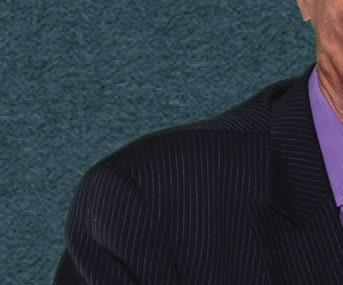


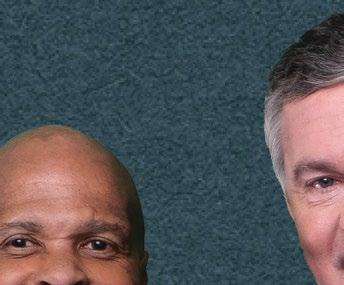


















BY JOE NOLAN, FILM CRITIC
From Blackboard Jungle to Lean on Me, classrooms often provide the backdrops in films. Many in this class of movies are known for their intensity, and inspiring themes and characters. Steve, a new school-set picture from Netflix, brings viewers challenging students, selfless teachers and a story about a community of outsiders struggling against the indifference of society and its cold and calculating systems.
Steve (Cillian Murphy) is the passionate, dedicated headteacher at Stanton Wood, a residential reform school for boys with severe behavioral and social issues. Set in mid-1990s England, the film finds its title character fighting to maintain order and protect his students over the course of one chaotic school day. Stanton Wood is the last refuge for boys society has abandoned, and Steve works to guide and support the troubled young men while grappling with his own emotions and mental health issues.
One of the biggest challenges of the day is the presence of a documentary film crew on campus capturing the daily chaos. Director Tim Mielants uses their interviews with students and staff for exposition and character introductions, and he deploys handheld cameras to capture the ebb and flow in the school’s congested corridors and classrooms. The film crew’s presence adds another layer of pressure to an already volatile environment — especially when a pompous Member of Parliament (Roger Allam) arrives for a campaign trail appearance.
When the school’s trustees make an announcement about future plans for Stanton Wood, the shock of the news ricochets through the institution. Against the backdrop of usual anarchy — fights breaking out in the cafeteria, students breaking down in the counselor’s office — teachers and government bureaucrats clash over how to care for vulnerable youth when resources run dry.
The announcement of the school closure adds to the challenges faced by Shy (Jay Lycurgo), who grapples with his own devastating news that he’s being disowned by his parents. In contrast, Steve’s unflagging commitment to boys like Shy is taking an unsustainable personal toll on his health and sanity. A phone conversation between Shy and his mother informs viewers of Shy’s surprisingly violent past, even as it reveals him to have the emotional maturity of a lonely little boy. The combination of the two is emblematic of a movie that finds Mielants inhabiting bleak environments with deeply human performances. Lycurgo and the film’s young actors bring Stanton Wood’s student body to life in performances that range from wounded to savage. Steve also boasts a great adult cast including Tracey Ullman, Little Simz and Emily Watson. The actors and director manage to bring viewers to volatile students and world-weary educators, embracing the tropes of a classroom drama while avoiding clichés. Watson and Murphy previously worked with Mielants on Small Things Like These (2024), a working-class drama set in 1980s Ireland. Still fresh off his Oscar win for Oppenheimer, Murphy continues stretching beyond romantic leads and gangster roles, and fans of his recent work will find a lot to like here.
As the day progresses, Steve battles his mental health issues, alcohol, and drug problems as he begins to unravel, and the troubles and trauma Steve has in common with the kids begin to break through all of his efforts at calm, responsible mentorship. The parallels between Steve’s breakdown and Shy’s interior turmoil constitute a wide-ranging exploration of compassion, burnout and society’s relationship with its most vulnerable. Murphy plays Steve as a man whose loving intentions
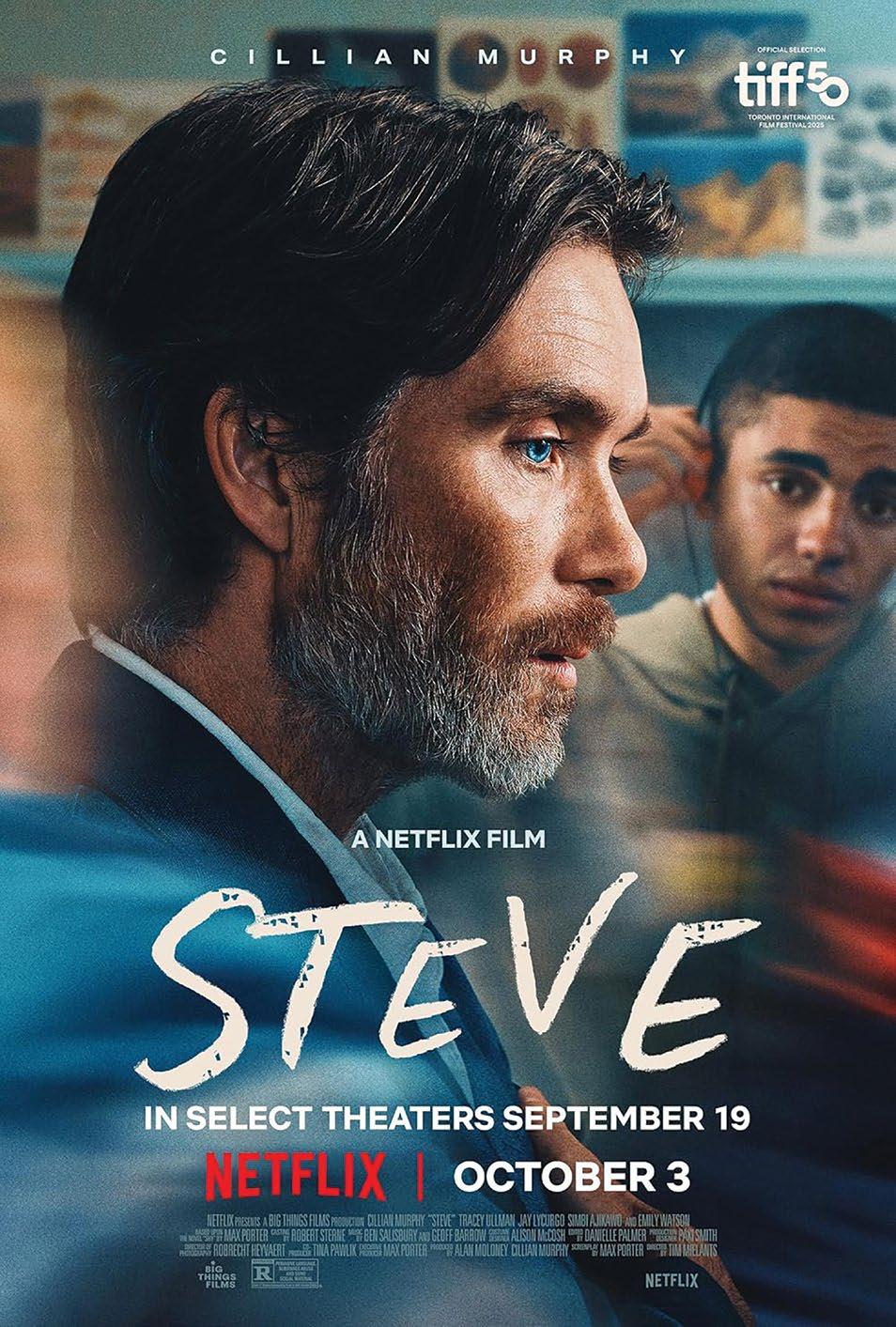
are undermined by his own instability, resulting in a story that’s as fractured and flawed as its protagonist. The film is not as rousing as Dead Poets Society or Stand and Deliver, but it’s an intense picture worth watching for its emotional portrait of a generous teacher and a community of good boys in bad trouble.
Steve is streaming on Netflix
Find out more about
projects at www.joenolan.com.
